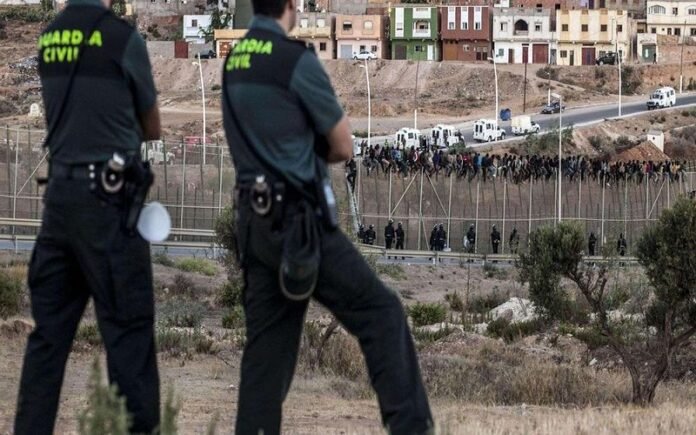Spanish media recently reported controversial statements by renowned Spanish intelligence analyst Fernando Cocho, who claimed that a joint sovereignty agreement between Madrid and Rabat over the occupied cities of Ceuta and Melilla is expected by 2030. According to Cocho, this agreement would be backed by the European Union and France. While these predictions have raised many questions, Moroccan diplomatic sources have categorically denied these speculations, calling them “interpretations far from reality.”
Framework of Analysis and Predictions:
Cocho believes that Morocco is gradually seeking to isolate the two occupied cities, both economically and militarily, citing the closure of customs borders and Morocco’s increasing military presence near the Canary Islands as evidence of these “maneuvers.” Cocho goes further by suggesting that Spain’s weak response reflects a “neglect” in defending its national sovereignty.
Moroccan Response: Affirming Cooperation and Deepening Relations
On the other hand, Moroccan government sources affirmed that the relations between Morocco and Spain are based on mutual respect and trust. They categorically denied any discussions about joint sovereignty over the two cities, emphasizing that the current focus is on implementing the agreed-upon roadmap between the two countries. The sources also clarified that the customs issues between the two countries are purely technical and not political, and efforts are ongoing to resolve these issues in the near future.
In-depth Analysis: Between Political Realism and Fear-Mongering
Cocho’s analysis reflects a security perspective that tends to exaggerate risks while seemingly overlooking the complex diplomatic and economic dynamics governing Moroccan-Spanish relations. On one hand, Morocco seeks to enhance its regional influence, not only through military or economic moves but also by strengthening its strategic partnerships with Europe and the United States. On the other hand, Spain recognizes the importance of maintaining strong and stable relations with Morocco, especially in the face of shared challenges related to security, migration, and the economy.
The Role of the European Union and France: Partner or Mediator?
Cocho’s analysis highlights the role of the European Union and France as actors supporting what he describes as “Moroccan expansion.” It is essential to question how realistic this claim is, especially since Europe considers Morocco a strategic ally in the region. Although France is strengthening its relations with Morocco, including through large infrastructure projects, French support cannot be interpreted as backing a shared sovereignty over occupied territories but rather as an effort to reinforce regional stability and protect its strategic interests.
Conclusion:
While intelligence analyses provide valuable future insights, they may sometimes overestimate events if they rely solely on a security angle. The focus should be on strengthening cooperation between Morocco and Spain based on shared interests and addressing regional challenges collectively. The discussion of joint sovereignty over Ceuta and Melilla remains far from the current reality, as the priority is to deepen bilateral relations according to the agreed-upon roadmap, ensuring the stability and sustainable development of both countries.


